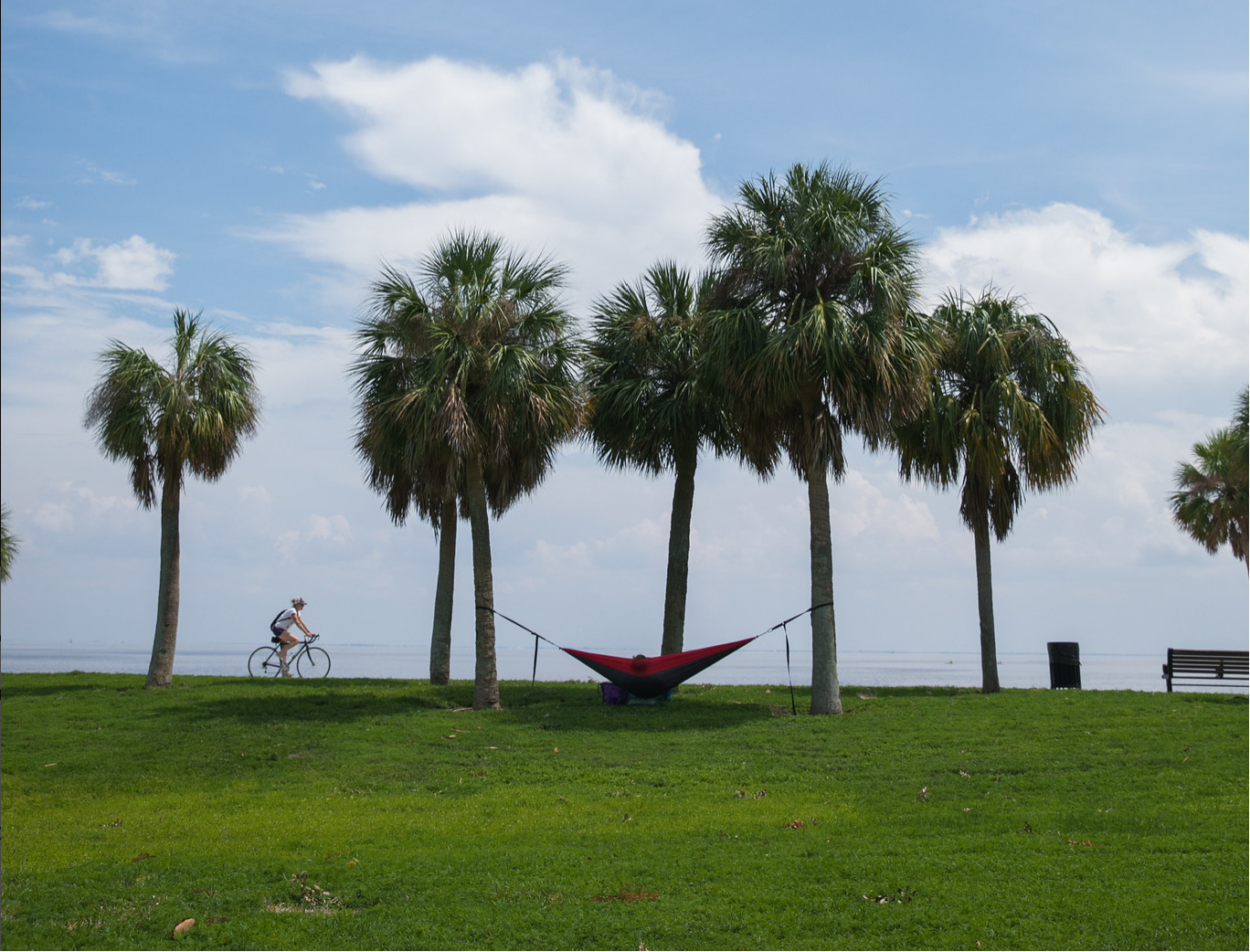The new bill has been criticized for “criminalizing homelessness”
Photo by Suzanne Townsend | The Crow’s Nest.
By Suzanne Townsend
On March 20 Gov. Ron DeSantis signed HB 1365, which seeks to address homelessness in Florida. The state has seen a 17% increase in homelessness in the past year alone, and republicans in Tallahassee say they don’t want Florida to become like cities such as San Francisco and New York.
“We have to govern this state and our communities with an eye towards what’s in the best interest of the law-abiding citizen … too often people in other states, other cities, they’re not doing well. It’s like they let the inmates run the asylum,” he said, from a podium which read, “Don’t Allow Florida to become San Francisco.”
The measure doesn’t outright punish people for sleeping or camping in public, but it does allow residents and business-owners to sue municipalities for not enforcing the law. What this enforcement would look like is a big concern for many people, especially after a homeless man suffered injuries after a ride in a St. Petersburg Police van when he was picked up for sleeping in an empty lot.
HB 1365 allows municipalities to establish designated temporary camps with running water and security for people living on the street, but only if there are no beds available at local shelters. Amanda Sinni with the Pinellas County Sheriff’s Office said that this wouldn’t be possible in St. Petersburg because there are beds available in shelters here.
So why do people continue to live on the street if they could stay in a shelter instead? Reverend Andy Oliver of Allendale United Methodist Church, who has worked closely with St. Petersburg’s homeless said, “Many of our shelters are dangerous. People have experienced being beaten, raped, they have their stuff constantly stolen. They aren’t safe spaces.”
Regarding the new law Oliver said, “To sleep is to exist, in order to exist as humans we have to sleep. And so this bill is basically criminalizing the existence of a group of people. And it’s immoral and it’s wrong.”
A number of people in Pinellas who sleep in their vehicles are also concerned about what this law could mean for them, but the bill states, “The term does not include lodging or residing overnight in a motor vehicle that is registered, insured, and located in a place where it may lawfully be.”
City officials in Hillsborough and Pinellas counties are still in review for how the law will be enforced and how exactly it will affect Tampa Bay’s homeless populations.



